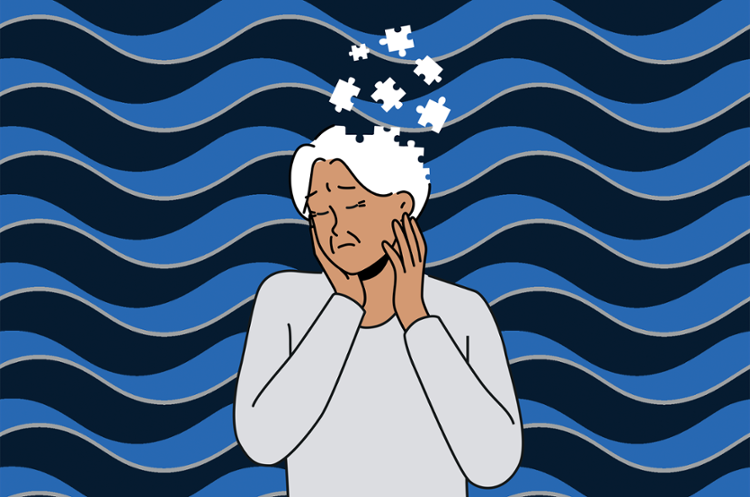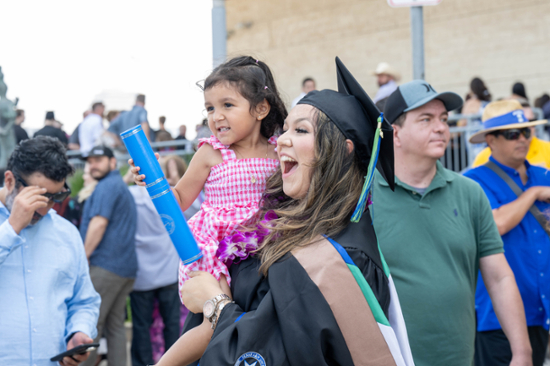TAMU-CC Amplifies Voices During First Asian American Pacific Islander Month Celebration
TAMU-CC Amplifies Voices During First Asian American Pacific Islander Month Celebration
Texas A&M University-Corpus Christi celebrated its first celebration of Asian American Pacific Islander (AAPI) Heritage Month from April 19-May 6.
CORPUS CHRISTI, Texas –Texas A&M University-Corpus Christi presented a dynamic range of ideas, points of view, and historical analysis in its first Asian American Pacific Islander Heritage Month, which featured a mix of virtual and in-person events and was held April 19-May 6. AAPI Heritage Month was added to the lineup of student-centric events by the TAMU-CC Division of Student Engagement and Success and complements other month-long cultural celebration on the island including Black History Month, Women’s History Month, and Hispanic Heritage Month. While AAPI Heritage Month is celebrated nationally in May, the A&M-Corpus Christi celebration followed the national higher education trend of starting in mid-April and ending in early May to avoid conflicts with finals week and commencement.
At the Campus Conversations forum on April 20, Dr. Kelly M. Miller, President and CEO of the Island University, reflected on the contributions and impact made by AAPI students.
“Here at the Island University … we are greatly enhanced by AAPI students currently represented by 535 students with cultural heritage from countries such as China, Japan, Vietnam, India and so many more,” Miller said. “This is a valuable part of our student population as well as our faculty and staff populations – populations that we want to grow, celebrate, and support as they work toward their goals and their dreams.”
Asian American Pacific Islander Heritage Month featured more than a dozen events. Some highlights include:
What is AAPI? An Overview
The celebration kicked off on April 19 with a virtual discussion led by Dr. Scott Kurashige, chair of Comparative Race and Ethnic Studies at Texas Christian University. Kurashige provided an overview of Asian-American and Pacific Islander culture and history; the event was presented by Academic Affairs.
“The questioning of who belongs in America, what does it mean to integrate, what does it mean to have social justice, what does it mean to have peace and liberation; this is the contest in which Chines, Japanese, Filipino, and Korean Americans come together and coin the term Asian American,” said Kurashige. “Asian American is a term of self-identification and of consciously anti-racist identification, very much in solidarity with the Black Power Movement and Black identity of the time.”
He also led a discussion regarding the topic of whether Pacific Islanders should be included under the term’s umbrella due to differences in experiences with decolonization and the fight for sovereignty.
Campus Conversations: A Forum on Anti-Asian Racism
On April 20, a forum was held in the Anchor Ballroom regarding the racial climate on campus and in Corpus Christi. The four-person panel – featuring Biomedical Science major Ryutaro Young ’21, Harte Research Institute doctoral candidate Patricia Malamamlama Cockett ’15, TAMU-CC Associate Professor of Art Leticia Bajuyo, and Newman Wong ’08 – discussed their experiences as AAPI living in the United States, along with their relationship with their identity.
Cockett, born and raised in Hawaii, earned a Master of Science in Marine Biology at the Island University. Cockett told the audience that her grandparents always encouraged her to identify as Hawaiian, not Pacific Islander.
“My grandparents said don’t check that box. Check ‘other’ and write in Hawaiian because we’re very different from a lot of the other Pacific Islanders – each has its own culture and their own languages,” Cockett said.
Bajuyo shared her experience as a biracial person of Filipino, Chinese, French and Dutch ancestry, which included a childhood anecdote where people spoke to her Caucasian mother about her and her brother in a dehumanizing, commodifying manner.
“This dialogue that you must be something else, there’s no way that you exist – that’s something that I recognize,” Bajuyo said.
As a native of Hong Kong, Wong said he did not identify himself as Asian until he moved to the United States.
“If you go to Asia, most people would identify themselves by nationality, so this is a new concept to me when I first came and had to get used to it to learn about it,” he said.
Lunchtime Learn: How British Colonialism Changed South Asia Forever
Dr. Rishi Raj ’21 gave a virtual presentation called “Lunchtime Learn: How Colonialism Changed South Asia Forever” that was live-streamed April 29 on WebEx and Instagram. A First-Year Seminar professor, Raj graduated May 15 from the College of Education and Human Development at the Island University with a Doctor of Education in Educational Leadership.
During his presentation, Raj discussed the economic, linguistic, and cultural effects that British colonialism still linger on the Indian subcontinent, along with the nuances of India’s oppression.
“There’s always talks about the ‘pros’ of colonization,” Raj said, referring to the railways, roads, and bridges the East Indian Company built. “But the railways and roads were really built to serve British interests, and not those of the local people; the needs of the people – the colonized people were incidental.”
When asked on how positive change can be made, Raj said that it begins with conversation, and that while everyone has a voice, racial minorities are lacking a platform to be heard.
Students, faculty, and staff wrote messages in solidarity to show support for Asian, Asian American, and Pacific Islander communities during a message-writing campaign on April 26-27. Socially distanced tables were set up on the East Lawn so Islanders could write messages in support in the wake of rising anti-Asian racism and xenophobia. These messages were then displayed in the Mary and Jeff Bell Library from April 26-May 6.
A Celebration of Culture: Focus on China
On May 3, Dr. Sining Kong, assistant professor in the Department of Communication and Media, gave the keynote address at “A Celebration of Culture: Focus on China” hosted in part by the Islander Cultural Alliance. Kong's presentation focused on the history of Harbin, her hometown, capital of the Heilongjiang province. The city is known for its annual Ice and Snow Sculpture Festival as the Ice City, Kong told the audience.
Kong said activities like those hosted by TAMU-CC for AAPI Heritage Month help promote a deeper sense of understanding between individuals from diverse cultural backgrounds.
“In these events, I feel we can understand each other much, much better,” Kong said. “And we can remove a lot of stereotypical thoughts and grow more knowledge on what Asian is.”

